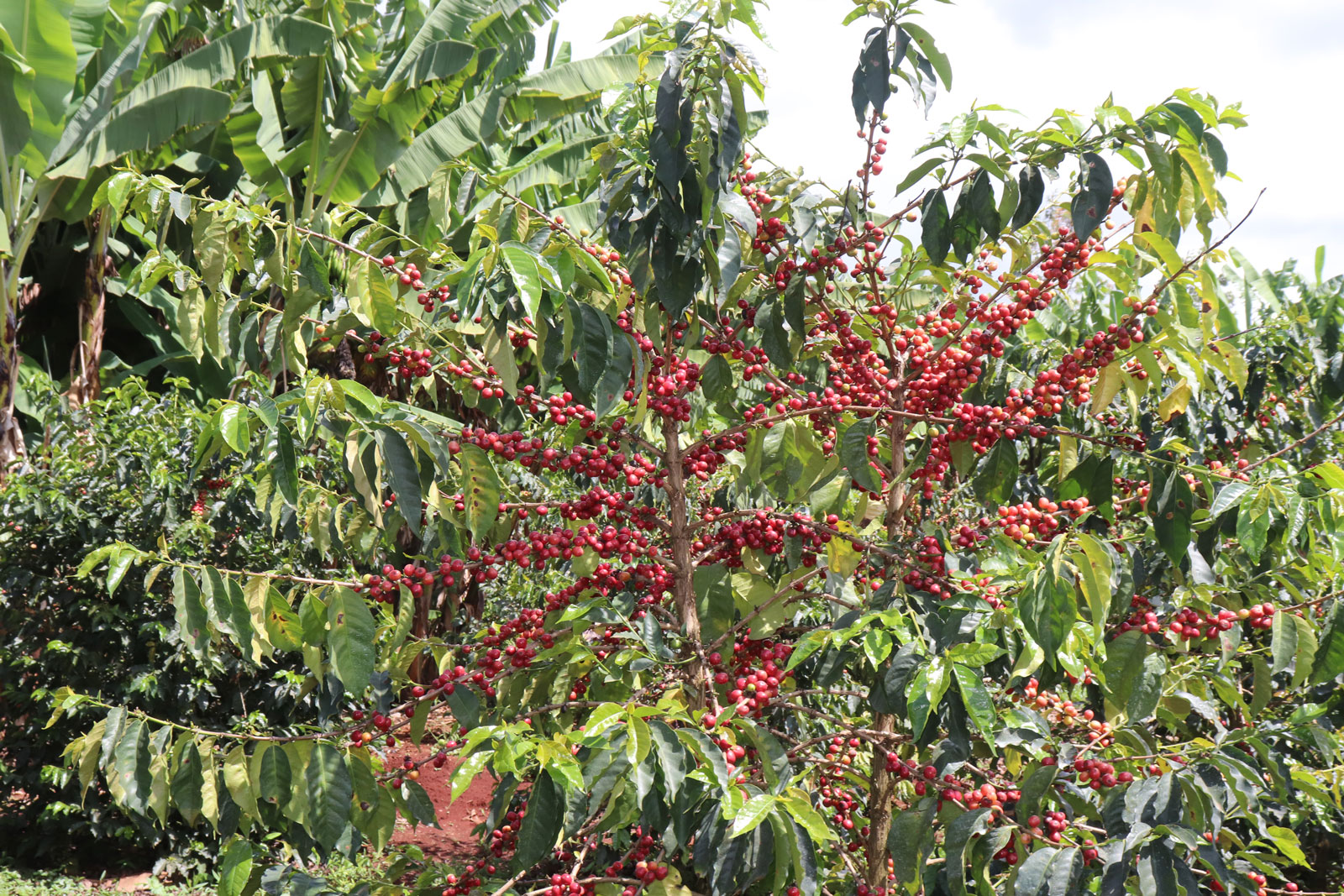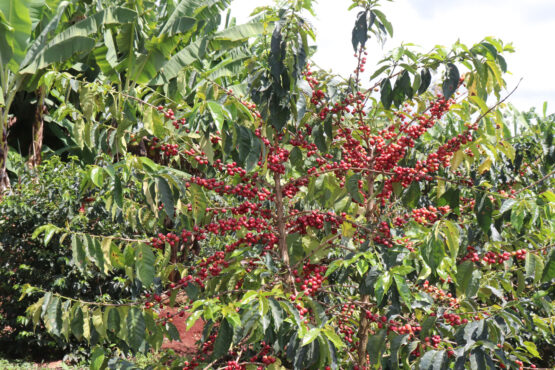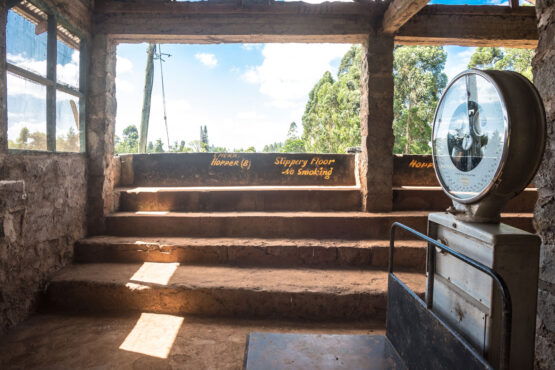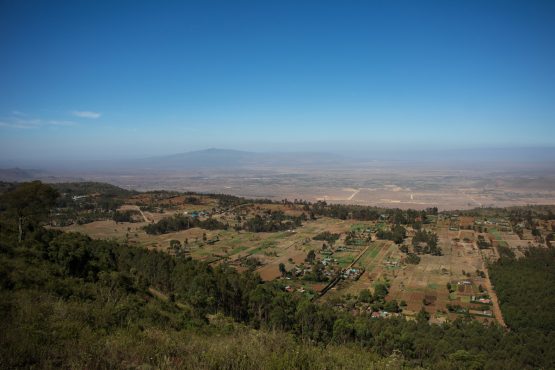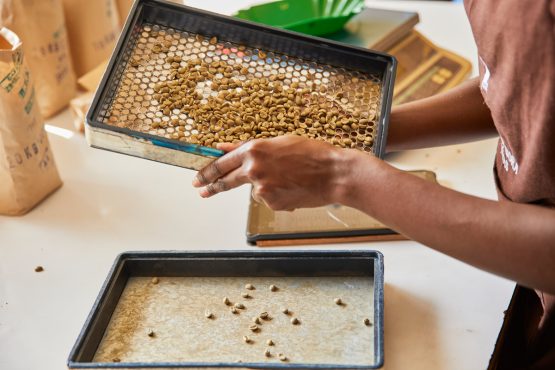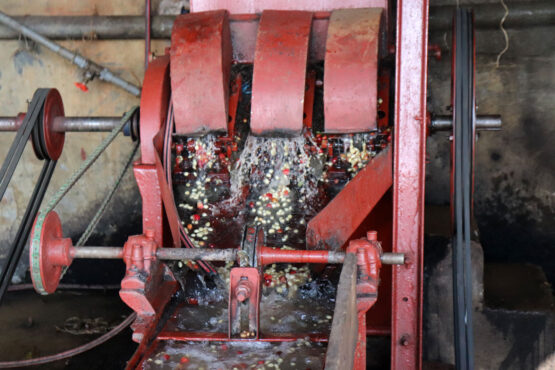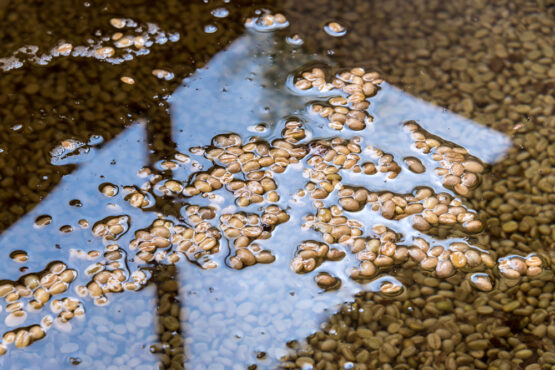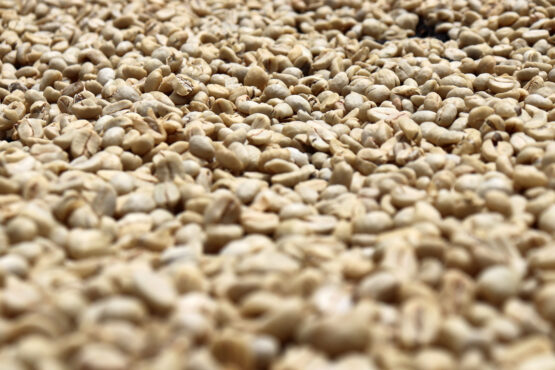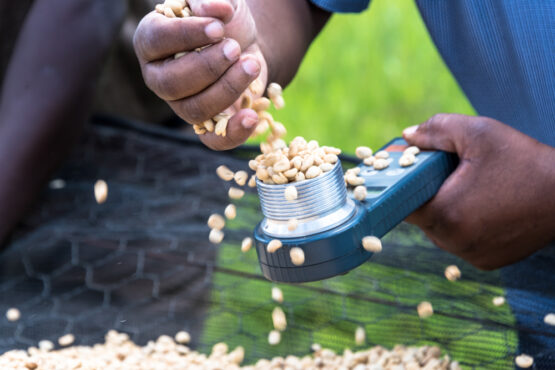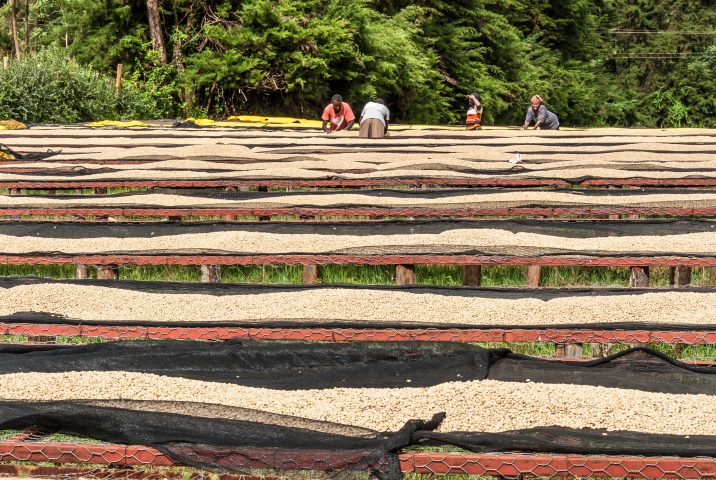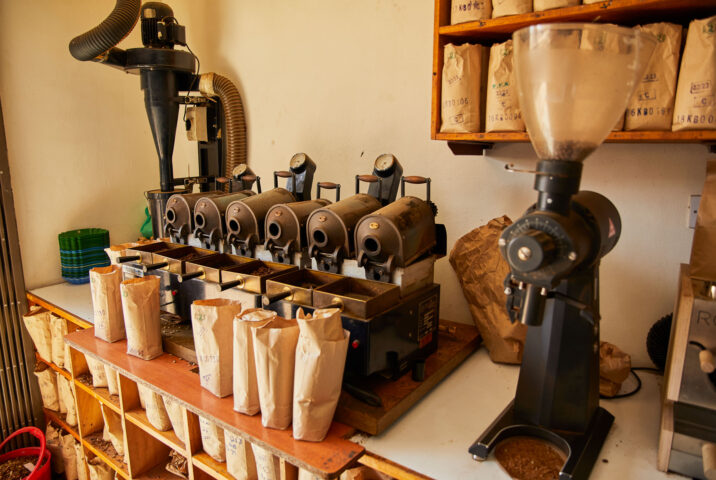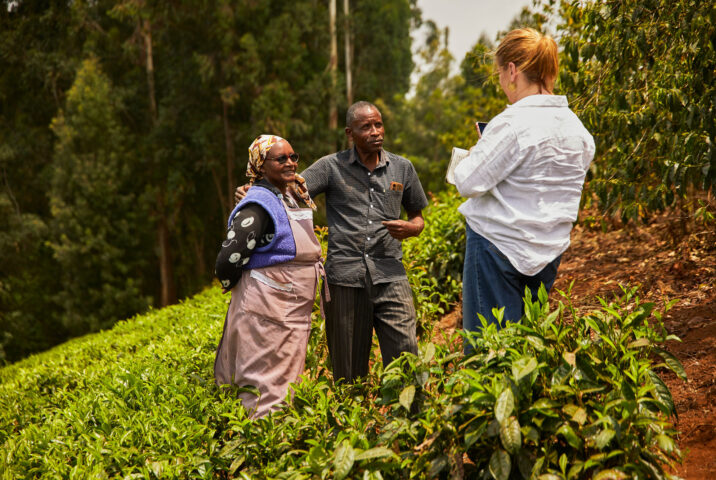Rianjagi Peaberry
Sweet and distinct, with complex florals and long finish. Honeysuckle, green grape and rosehip tea.
Rianjagi is a washing station (or factory, as they are called in Kenya) located near the northeastern slopes of Mt. Kenya National Park and the Manyatta Division, in Kenya’s Embu County. Established in 1976, it is the only factory owned by the Rianjagi Coffee Farmers’ Cooperative Society (FCS).
Rianjagi receives coffee cherries from around 1,100 of the cooperative’s members (out of 2,100 total), who grow coffee trees on nearby farms. Once harvested, coffee cherries are delivered to Rianjagi, where they are processed and dried, ahead of dried parchment being transported to Nairobi for milling and sale (either directly or through the auction system).
Rianjagi sits at 1,605 – 1,625m above sea level and is located near the Rupingazi river, Embu’s largest river. Fresh, clean water is pumped from Rupanzagi to process coffee, contributing to the exceptional quality of coffees processed at Rianjagi.
ABOUT RIANJAGI FARMERS’ COOPERATIVE SOCIETY
Rianjagi FCS was formed in 1976, when Rianjagi factory was established. The co-op supports its farmer members by offering pre-harvest financing, allowing them to plan and invest in the upcoming crop. They also buy inputs in bulk and distribute them to members at a lower cost than otherwise possible.
Rianjagi has five members on its board, and a total of eight permanent staff. Board members must be active farmers and are re-elected every three years, to avoid corruption. The cooperative works out of their office in the division of Manyatta, some 140km north of Nairobi.
ABOUT EMBU
Embu County is part of Kenya’s former Eastern Province, which was dissolved in 2013. Embu borders Kirinyaga to the west, along with the country’s central coffee-growing regions. Embu is the traditional home of the Embu, Kamba and Mbeere people. This region and its surrounds are considered to be some the wealthiest areas of the country, due to the incredibly fertile land, geographical proximity to the capital, Nairobi, and close integration with the country’s colonial administration before Kenya gained independence in 1962. This integration afforded the communities who lived here with opportunities for education, business and political prowess, despite the various injustices of the colonial government. The Embu, Kamba and Mbeere people have a long and proud history of agriculture and cattle-raising, and the region is farmed intensively, with coffee, tea and dairy being the most important modern crops.
Many of the producers in the region are second-generation landholders, whose parents purchased and planted the land in the 1950s and 1960s, after agricultural reform allowed for small Kenyan farmers to produce cash crops on their family farms (instead of only on large, British owned estates). Farmers in Embu grow coffee as a cash crop alongside food crops like banana, maize, macadamia, avocados and vegetables. Tea and dairy are also important sources of income for the producers.
GRADING
Kenya uses a grading system for all its exportable coffee lots. The grading system is based on the size and assumed quality of the bean. A coffee’s grade is directly correlated with the price it attracts at auction or through direct trade.
This lot is graded as a PB, or peaberry. This grade is easily defined by the physical characteristics of the bean (in this case, PB means peaberry, or where a single bean has grown inside a cherry instead of a pair) and to a certain extent, quality. While it is assumed that AA lots represent the highest quality, we have often found PB lots to be incredibly complex and refined.
HOW THIS LOT WAS PROCESSED
All the coffee cherry is hand-picked and delivered on the same day to the washing station, where it undergoes meticulous sorting. This is also done by hand and is overseen by a ‘cherry clerk’ who ensures any unripe and damaged cherries are removed. The ripe cherry is then weighed and recorded, and the farmer receives a receipt of delivery.
The coffee is then placed in a receiving tank and pulped using a four-disc pulping machine to remove the skin and fruit from the inner parchment layer that protects the green coffee bean. After being pulped, the coffee is sorted by weight using water, with the highest quality and densest beans being separated out from the lighter, lower-quality beans.
The coffee is then dry fermented for 12–24 hours, to break down the sugars and remove the mucilage (sticky fruit covering) from the outside of the beans. Whilst the coffee is fermenting it is checked intermittently and when it is ready it is rinsed and removed from the tanks and placed in a washing channel.
The parchment-covered coffee is then washed with fresh water from the nearby Rupingazi River and sent through water channels for grading by weight. The heavier coffee, which sinks, is considered the higher quality, sweeter coffee, and any lighter density or lower grade coffee beans are removed. The beans are then sent to soaking tanks where they sit underwater for a further 24-48 hours. This process increases the proteins and amino acids, which in turn heightens the complexity of the acidity.
After soaking, the coffee is pumped onto deep drying beds where they drain for 1-2 hours, before being transferred to raised drying tables (also known as African beds). As they dry the parchment is turned constantly to ensure even drying, and so that any defective beans can be identified removed. Time on the drying tables depends on the weather, ambient temperature and processing volume: taking anywhere from one to three weeks to get to the target moisture of 11–12%. After drying the coffee is moved to conditioning beds, where it rests in parchment for about a month. This resting period helps to stabilise water activity and contributes to long-lasting quality and vibrancy in the cup.
WHY WE LOVE IT
Coffees from Nyeri are renowned for being complex, bursting with blackcurrant and blackberries. This peaberry lot is vibrant and distinct, with green apple and a silky texture.
